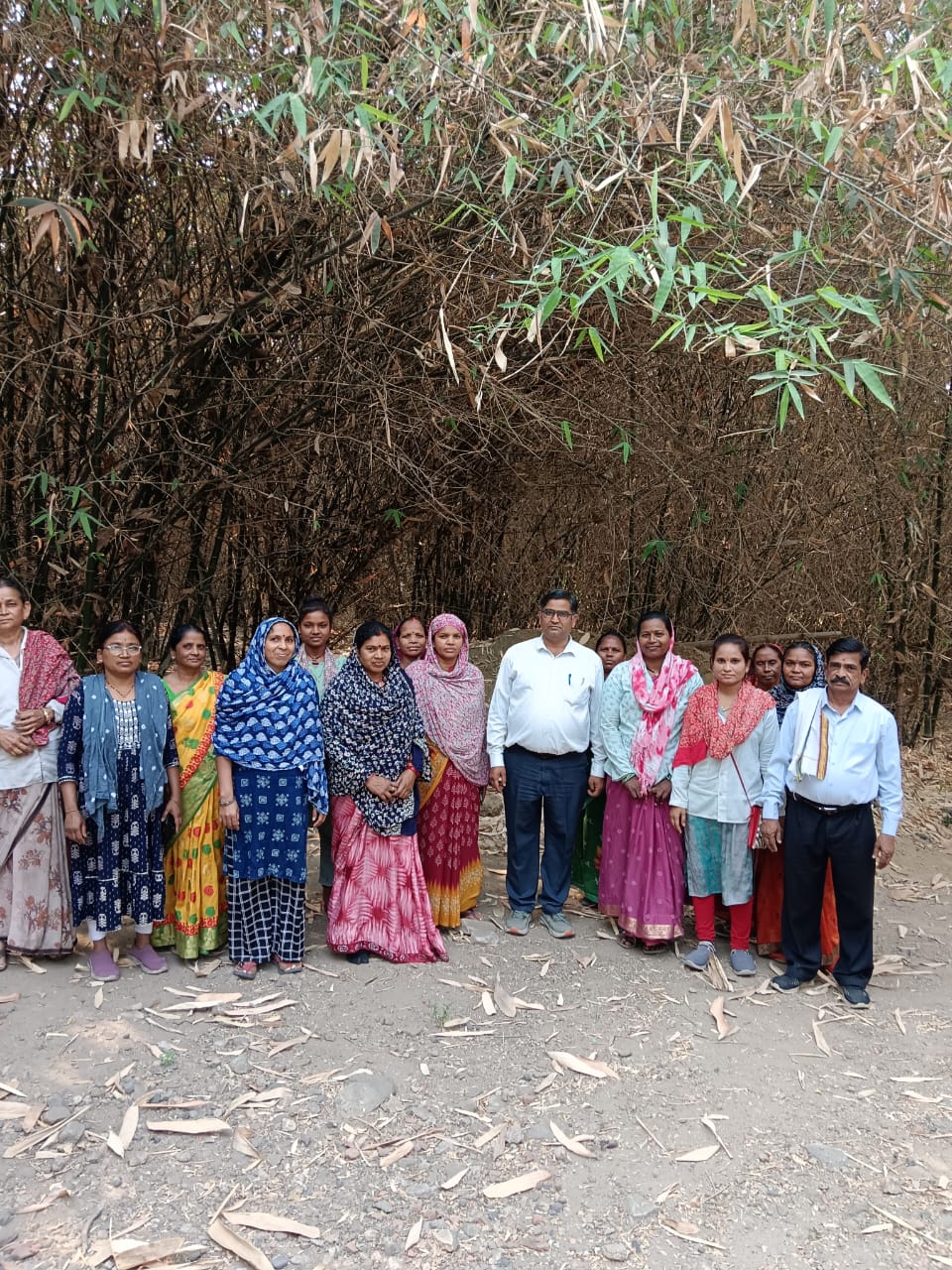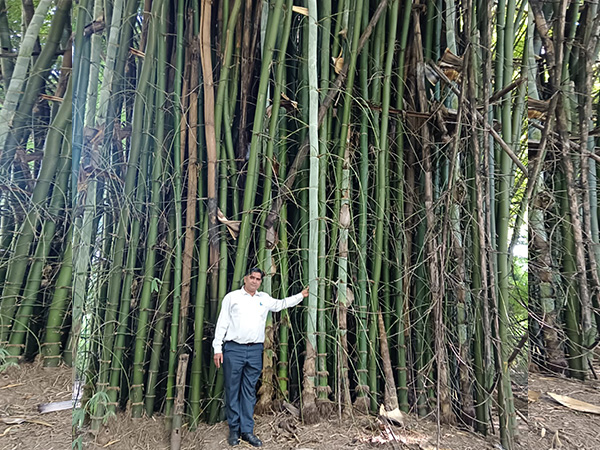Nagpur (Maharashtra) [India], July 17 (ANI): What was once a vast, lifeless expanse of hazardous fly ash on the outskirts of Nagpur has today blossomed into a sea of green, thanks to the vision, science, and perseverance of one man: Dr Lal Singh, Principal Scientist at CSIR-NEERI (Council of Scientific and Industrial Research – National Environmental Engineering Research Institute).
In an ambitious environmental project that combines ecological wisdom with community empowerment, Dr Lal Singh led the transformation of 1,500 hectares of fly ash dumps from the Koradi Thermal Power Plant into a vibrant bamboo forest. More than 5 lakh bamboo saplings were planted on land once considered unfit for any form of vegetation — not only reclaiming the soil but reviving the lives of people who depended on it.
Fly ash, a by-product of coal combustion, poses a severe threat to health and the environment. The fine, powdery material often contains heavy metals and is easily carried by wind, contaminating nearby fields, water sources, and lungs. For the residents living around Koradi, dust storms and air pollution had become a daily nightmare.
“Between 2015 and 2016, the Energy Minister of Maharashtra called us and expressed concern over the severe dust problem,” recalls Dr. Lal Singh. “He asked if we had a solution. I told him — yes, and we could control it within six months.”
Though CSIR-NEERI had not previously worked on fly ash dumps, Dr Singh and his team took up the challenge. They developed a scientific model known as Eco-Rejuvenation, designed to reclaim degraded land using fast-growing bamboo species, microbial soil treatment, and organic amendments.
“We selected bamboo because it grows rapidly — up to one meter per month under the right conditions,” he explains. “Within six months, we had 20-25-foot-tall bamboo suppressing the hazardous dust. We recorded a 90% reduction in airborne ash.”
The transformation was not just environmental — it was social. Dr Singh’s approach centered around community participation, particularly the inclusion of local women from self-help groups (SHGs).
“This whole area was once barren and covered with hazardous dust,” says Padma Nishad, one of the SHG workers. “We worked hard to plant bamboo here. Now we earn ₹5,000 a month. I can help at home and pay for my children’s education.
Pranali Sahare, a SHG member from Mahadula village, shares “This was a fly ash dump. Planting trees seemed impossible. But Dr. Lal Singh encouraged us. We planted saplings inside ash pits — now it’s a green forest. We’ve been working here for seven years. This work gave us stability and purpose.”
According to Dr Singh, MahaGenco (Maharashtra State Power Generation Company) played a crucial role by employing More than 300 women in bamboo plantation. These women have been earning steady incomes for over six years, lifting their families out of poverty and funding their children’s futures.
The bamboo planted at Koradi does more than absorb dust. It sequesters carbon, releases oxygen, improves soil health, and offers commercial value. After three years, bamboo can be harvested annually — with returns high enough to recover the initial investment quickly.
“This is a complete circular model,” says Dr Singh. “It brings together environmental restoration, economic return, and social upliftment. We didn’t just plant bamboo — we planted opportunity.”
The success at Koradi is a powerful reminder of what’s possible when science, governance, and grassroots participation come together with clarity of vision. Under Dr Lal Singh’s leadership, a barren, hazardous wasteland has been turned into a living, breathing ecosystem — and a livelihood source for hundreds.
In a time when climate change and pollution dominate global headlines, the bamboo miracle of Koradi stands as a shining example — not just of innovation, but of hope. (ANI)
Disclaimer: This story is auto-generated from a syndicated feed of ANI; only the image & headline may have been reworked by News Services Division of World News Network Inc Ltd and Palghar News and Pune News and World News
HINDI, MARATHI, GUJARATI, TAMIL, TELUGU, BENGALI, KANNADA, ORIYA, PUNJABI, URDU, MALAYALAM
For more details and packages















